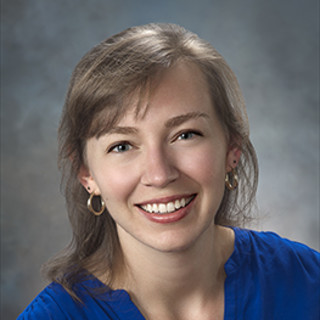You have to say the word. I repeated the mantra to myself as I left the patient’s room. I closed the curtain behind me, protecting the small, sad cluster of staff from the rest of the unit. Our respiratory therapist was still rocking the baby; he had died in her arms minutes before. The other nurses and doctors present weren’t ready to leave the room. They weren’t ready to leave him alone. We were still waiting for his family.
Out at the nurses’ station, the PICU was settling back into its normal rhythm after the code. Our charge nurse paced back and forth between me and the room, anticipating needs and filling gaps we couldn’t see. Behind me, the surgeons and cardiologists were slowly shaking their heads, halfheartedly trying to discuss other patients. I opened the chart, pulled a phone closer, and mentally reviewed what I needed to say. One of the other fellows had called the parents when the code began. I was calling to tell them how it ended. “This is Dr. Yildirim in the pediatric ICU. I understand you’re on the road driving up here. Is that right?”
We heard earlier that morning how they’d finally gone home for rest last night. With the new pandemic-era visitor restrictions, they’d been forced into alternating shifts at the bedside for days. They were ships passing in the night, never together for important moments or conversations. Family meetings were held semidigitally, with one parent in the hospital and the other on video, struggling to make sense of both the unreliable audio connection and the unfolding medical tragedy.
It was a relief to the team that the parents had finally decided to take a night off. The pandemic had denied each parent the support of the other. With rotating bedside vigils, they were not able to mourn their son’s illness or to plan for the worst together. The PICU is a lonely place for parents, and worse still when deprived of family and friends. They’d driven home, five hours away. Maybe before COVID-19 they would have stayed close to the hospital. During quarantine, however, all local volunteer and charity housing options had closed their doors. Based on where the family lived, a different children’s hospital in another state was actually a much shorter drive. But their insurance covered my hospital. He was my patient; this was my family.
“Could you please find someplace safe to pull over so that we can talk?”
They knew immediately why I was calling. They heard earlier about the chest compressions and epinephrine and how ECMO was not an option. What else could this phone call be? I knew they knew and I still could not bring myself to say the word while they were flying up the highway towards the hospital, ignoring all of the speed limits to shave time off of their long drive. I couldn’t care for the parents the way that I wanted to. They were not here beside me. I couldn’t talk to them about comfort and closeness with their son in the last moments of his life. I couldn’t tell them how they were my patients, too, and how I would be by their side through this. But I could at least try to keep them from having an accident on the highway. I could sit with them in heavy silence, while they searched for a shoulder wide enough to stop safely.
“I am so sorry to tell you this, but we could not restart his heart. Your son has died.”
It was hard, but I said the word. We all learn in medical school why it is important to do so, but “die” still sounds so harsh. Today, it sounded cruel. Over the phone, I had no way to soften it with a gesture or expression. I tried. I imbued the words with as much respect and compassion as I could convey through voice.
“He was not in pain, and he did not die alone.”
There was little else to offer. It was a short conversation, and I let them know that we would talk more when they arrived. I asked them to drive safely, not to rush. I asked if they had questions. There was a brief pause, and then the mother asked, very quietly, “Will we be allowed up together to see him?”
Her question knocked me off balance. Up until this point, I had been relatively composed. Now, I was overwhelmed. The lingering adrenaline left from running the code mixed with a flood of new emotions: uneasy shame that she had to ask; prickling anger at the circumstances that forced them so far away; and the deepest pity for their newly broken family. My throat tightened, tears threatened to spill onto the keyboard. I flagged down the charge nurse to listen in as my voice cracked out a reply: “Yes, of course you can be here together.”
Of course we could bend the rules now that their child had died. Of course we would make an exception. Of course the hospital would allow it. The charge nurse nodded sharply in agreement and set off to square things with the administrators. I shuffled back to the room. My co-fellow was holding the baby on the couch. He was swaddled and peaceful. The room had been tidied, the harsh overhead lights dimmed. At the doorway, team members solemnly queued to take turns with him. Shifts changed, but our team never left him alone. We never put him down. When his parents finally arrived together, hours later, he was still cradled in loving arms. For a family that had endured so much separation, this was the best we could do.
Melissa is a fellow in pediatric critical care at the University of Virginia. Her research interests include neurodevelopmental outcomes and management of medical complexity after critical illness. When not in the hospital, she's hiking in the Blue Ridge mountains with her husband, an orthopedic surgeon, and their two dogs.
Click here to see more perspectives on COVID-19 from the Doximity network.
Click here for up-to-date news about COVID-19 on Doximity.







